Editor’s note: The following — a British perspective on the American Revolution — is extracted from The United States: An Outline of Political History, by Goldwin Smith (published 1893).
(Continued from Part 1)
Of the fomenters of the quarrel in New England the chief was Samuel Adams, who, we can scarcely doubt, whatever might be his professions, had set his heart on the achievement of independence; had been laying his plans and enlisting his associates, such as the wealthy Hancock and the impetuous Otis, for that purpose; had welcomed rather than dreaded the dispute, and preferred the mortal issue to a reconciliation. This man had failed in business as a maltster and as a tax collector, but he had succeeded as a political agitator and has found a shrine in American history as a patriot saint. Though an enthusiast, he was not wanting in the astuteness of the politician. The latest of his American biographers cannot help surmising that his Puritan conscience must have felt a twinge when in the very time at which he had devoted himself body and soul to breaking the link that bound America to England, he was coining for this or that body phrases full of reverence for the king and rejecting the thought of independence. He had a paternal feud with Hutchinson, afterwards Governor of Massachusetts, a man whose reputation long lay buried under patriot vituperation, but who is now admitted by fair-minded writers to have been himself a patriot, taking the line opposite to that of Samuel Adams, and seeking to the utmost of his power peace with justice.
The chief fomenter of the quarrel in the South, not less glorified than Samuel Adams, was Patrick Henry. This man also had tried various ways of earning a livelihood, and had failed in all. He was a bankrupt at twenty-three, and lounged in thriftless idleness, till he found that though he could not live by industry, he could live by his eloquent tongue. The circle in which as a Virginian not of the highest class he formed his statesmanship is described by an American biographer as “having comprised an occasional clergyman, pedagogue, or legislator; small planters, and small traders; sportsmen, loafers, slaves and the drivers of slaves, and more than all this the bucolic sons of old Virginia, the good-natured, illiterate, thriftless Caucasian consumers of tobacco and whiskey, who cordially consenting that all the hard work should be done by the children of Ham, were thus left free to commune together in endless debate in the tavern porch, or on the shady side of the country store.” In Virginia admission to the legal profession might be gained without laborious study of the law. Henry’s first exploit as a barrister was a successful defence of the spoliation of the clergy, an unpopular order, by an appeal to public passion against legal right. Civil discord brought him at once to the front. His famous speech against the tyranny of George III is often recited : — “Is life so dear, or peace so sweet, as to be purchased at the price of chains and slavery? Forbid it, Almighty God. I know not what course others may take, but as for me, give me liberty or give me death.” When he said, “Is life so dear, or peace so sweet, as to be purchased at the price of chains and slavery,” he stood, as an eyewitness has told us, in the attitude of a condemned galley slave, loaded with fetters, awaiting his doom; his form was bowed, his wrists were crossed, his manacles were almost visible as he stood like an embodiment of helplessness and agony. After a solemn pause he raised his eyes and chained hands towards heaven, and prayed in words and tones that thrilled every heart, “Forbid it, Almighty God.” Mentally struggling with the tyranny, he looked, the same witness tells us, like “Laocoon in a death struggle with the coiling serpents.” “The sound of his voice was like that of a Spartan pæan on the field of Platæa, and as each syllable of the word ‘Liberty’ echoed through the building his fetters were shivered, his arms were pulled apart, and the links of his chain were scattered to the winds. He stood like a Roman Senator defying Cæsar, while the unconquerable spirit of Cato of Utica flashed from every feature, and he closed the grand appeal with the solemn words, ‘Or give me death,’ which sounded with the awful cadence of a hero’s dirge, fearless of death, and victorious in death; and he suited the action to the word by a blow upon the left breast with the right hand, which seemed to drive the dagger to the patriot’s heart.”
It is no wonder that Patrick Henry could so vividly portray to his audience the attitude of a slave. From the beginning to the end of his life he was a slaveholder, he bought slaves, he sold slaves, and by his will, with his cattle, he bequeathed slaves. A eulogist says of him that he could buy or sell a horse or a negro as well as anybody. That he was in some degree conscious of the inconsistency does not alter the fact. Other patriot orators besides Patrick Henry, when they lavished the terms slave and slavery in their revolutionary harangues, might have reflected that they had only to look round them in order to see what real slaves and slavery were.
Massachusetts, where the fire broke out, was in a specially inflammable state. John Adams in a paper embodied in his diary describes the multitude of taverns swarming with busy politicians, who he says were more in number than the people who attended to their own business. The constitutional sensitiveness and contentiousness called forth by the dispute about the Stamp Act had upon the repeal of that act calmed down but had not died out. By this time the legal profession was fully fledged. Lawyers had taken the lead in political life and they carried into it the spirit of litigation. A great many law suits were going on. Even the discourses on polemical theology which the people constantly heard from the pulpit would tend to make them argumentative and contentious. Patriotism of the classical type was fashionable in England, and the fashion had spread to the colony. Brutus and Cassius were the model patriots of the hour; rhetoric was always conjuring with their names. Wilkesbarre, the name of a town in Pennsylvania, is a quaint memorial of the settlers’ reverence for those two great tribunes of the people, Wilkes and Barré, on the moral glories of the first of whom it is needless to dwell; while the second, the author of a famous stroke of rhetoric against the false claim of the mother country to colonial gratitude, made his way through a career of fiery patriotism to the Clerkship of the Pells, one of the fattest sinecures of corruption. The Puritan clergy were angered by the concession of legal toleration to Roman Catholicism in Quebec and were always in dread of prelatic invasion. There was a daily source of irritation in the tightened pressure of commercial restrictions and the demeanour of royal officers engaged in enforcing them. The disputes about fixed salaries for governors and other crown officers were also in an angry state. The presence of a soldiery, alien to a city of Puritan merchants like Boston, filled up the measure of exasperation, for such a garrison was sure to bear itself haughtily towards the people.
When fortune frowns everything goes wrong. Of all the disasters the greatest was the eclipse of Chatham which left the political firmament to Townshend’s malignant star. Next to this was the social catastrophe of Franklin, the one man who being revered in England as well as in America might have mediated with some chance of success, and to whose advice George Grenville had in fact resorted. The private letters of Governor Hutchinson were betrayed into his hands. He must have known and he did know that they had been stolen, or at least improperly obtained, and that he had no right to use them. When he sent them to Boston under the formal seal of confidence, he can hardly have failed to surmise that by the men to whom he sent them that seal would be broken. His plea that he acted in the interest of peace, hoping to convince his fellow colonists that evil counsels came not from England but from their own quarter, cannot be seriously entertained. Its hollowness confirms his condemnation. That he believed himself to be doing good may be admitted, it cannot be admitted that he believed himself to be doing right. English gentlemen were licentious and some of them were politically corrupt, but they had a keen sense of social honour. To complete the disaster, the duty of dealing with the case fell not to the lot of a man of character and dignity but of Wedderburn, a low adventurer, branded at his death by the king himself as the greatest scoundrel in the realm, whose brutalities made of Franklin a deadly foe. Another piece of ill luck was the Opposition leadership of Fox, a debauchee in politics as in private life, whose reckless violence and revolting displays of sympathy with the Americans even when they had France for an ally, could only confirm the obstinacy of the king and his ministers and identify their cause in the eyes of the nation with that of the honour of the country. Sir Gilbert Elliot was probably right in saying that North might have fallen long before if he had not been propped by the unpatriotic behaviour of Fox. Burke, as Fox’s partner, hardly escapes a share of the same censure. Fox behaved in the same way at the outbreak of the French Revolution.
The restrictions upon colonial trade and manufactures were a cause for the most reasonable discontent. The restrictions on trade might be excused by the dominant fallacies of a protectionist era and palliated by the commercial privileges and bounties which the colonies enjoyed. Those on manufactures were without palliation or excuse, imposed solely in the interest of the selfish manufacturer at home. These grievances, if redress had been obstinately refused, would have justified revolt. But they are not put forward as a ground of revolt in the American Declaration of Independence. The Stamp Act having been repealed, all the duties except that on tea having been removed, and a pledge against their re-imposition having been given, the tea duty was the sole remaining issue. Was this a sufficient reason for overthrowing a government under which all admitted that general liberty was enjoyed, for shattering an empire of the greatness of which all professed to be proud, and for bringing on a country the havoc, moral as well as material, of civil war? It is true that in the case of the tea duty, as in that of Hampden’s assessment to ship money, what was to be considered was the principle, not the amount. But ship money was not merely a wrongful impost, it was the entering wedge of unparliamentary taxation destined to furnish the means of a system of government in church and state fatal to the political liberties and to the spiritual life of the nation. Not Grenville, not even Townshend, not George III himself had conceived any such design; though the arbitrary tendencies of the king at least were soon called forth by the conflict. There seems to be no reason for believing that either Grenville’s or Townshend’s policy was originally inspired by the king. Nor was there ever a man less likely to play Strafford than Lord North. Would it not have been right before drawing the fratricidal sword to be sure that no hope of peaceful redress was left? Why should not the tea duty have been repealed as the other duties and the Stamp Act had been repealed? Its retention was understood in America to have been carried in the cabinet by a bare majority. A circular from the Home Secretary assured the colonies that the duties would not be re-imposed, and if the ground assigned was that of mere commercial expediency and not that of constitutional principle, the assurance was not the less practically valid. Colonial right had powerful advocates in Parliament. It had Rockingham with Burke at his side. It had Chatham whenever he should emerge from the cloud. British merchants had thronged the lobbies of the House of Commons on the night of the repeal of the Stamp Act and hailed Conway, who moved the repeal, as a delivering angel. But what those who managed the populace of Boston at heart desired was not constitutional redress, it was independence. On the passing of the Stamp Act, among other excesses the Stamp Office at Boston was levelled, the house of the stamp distributor was wrecked, and he was compelled by the mob to resign his office and to swear beneath the tree upon which his effigy was hanged never to resume his post; the houses of two officials connected with the Admiralty Court of the Custom House were rifled, the records of the Admiralty Court burnt; the mansion of Lieutenant Governor Hutchinson was destroyed, his plate, his furniture, his pictures, and his fine library were plundered and burnt, and the owner scarcely escaped with his life. On the passing of the tea duty outrage was renewed. The custom house officers were assailed by parties armed with bludgeons and compelled to fly, officers were tarred and feathered, commissioners were hung in effigy. The “Tories,” as the friends of government were nicknamed, were everywhere pursued with insult by the Patriot party who borrowed from the party of the English Revolution the honoured name of Whigs. A reign of terror was directed against all the ministers of the law; merchants who had imported goods from England were compelled by the populace to give them up to be destroyed or to be re-shipped. One who sold English goods was stoned through the streets. Sedition was preached from the popular pulpit. Under extraordinary provocation a party of soldiers fired, killing five rioters and wounding six. This was the “Boston Massacre,” celebrated by mourning services in chapels hung with crape. Praise is claimed for the citizens because they forbore to hang the soldiers. But had they hanged a soldier, it was clear that to avenge his blood the last powder of the empire must have been burned; and John Adams showed not less of policy than of chivalry in appearing for the defence. Presently a revenue cutter was fired, after shooting and badly wounding the commander. At last came the “Boston Tea Party” in which a cargo of tea, the property of merchants trading under the imperial flag, was thrown into the bay. A government thus bearded and insulted has its choice between abdication and repression. In this case abdication would have been the wiser course, but repression was the more natural. Americans at the present day would not applaud violence as their historians applaud the “Boston Tea Party.” If the temper of the English Tory was tyrannical, neither that of the New England Puritan nor that of the Virginian slaveholder was mild.
In what order and degree the various causes of the catastrophe for which the government or the mother country was responsible — resentment at illegal taxation, soreness under commercial restraints, anger aroused by violent measures of repression, the galling presence of an unwelcome soldiery, and imperial arrogance — may have combined with republican aspiration on the part of colonial leaders and the spread of a revolutionary spirit, it is impossible to say. All that can be said is that the catastrophe was sure to come and sure to be disastrous.
The measures of repression, in any view, deserve the censure which has been passed on them. They were passionate, indiscriminate, and insulting; bolts of blind wrath launched across the Atlantic by men imperfectly informed as to the situation and ignorant of the character of the people, as transoceanic rulers must always be. By closing the port of Boston scores of traders faithful to the government were struck. By the abrogation of the charter of Massachusetts every colony was made to feel its chartered rights imperilled. Worst of all was the revival of a law passed in the hateful reign of Henry VIII, under which subjects accused of treason anywhere could be transported to England for trial. This not only threatened all colonists with the loss of safeguards for personal liberty but outraged their self-respect. Shoot people if you must, but do not hurt their feelings. If there was to be repression at all, troops enough should have been sent, and the law should have been enforced against its violators at Boston without inflicting penalties on the innocent or menacing colonial liberties in general. However, no repression could have been final; its temporary success would have been the beginning not the end of woes.
In entering on his attempt at coercion the King was assured that there was a strong party in the colonies on his side. There was without doubt a party opposed to revolution, and at the outset it included a large portion of the wealth and intelligence and probably a large majority of the entire people. But the adherence of much of it to the crown was rather passive than enthusiastic, the commercial Quaker of Philadelphia desiring not to fight on either side but to be at peace. It was unorganized, and when the royal governors had been expelled it was without leaders. Still in the struggle which ensued as many as twenty-five thousand loyalists at the lowest computation, according to the best authority, were in arms for the crown, a number sufficient to give the conflict the character of a civil war between the parties in America as well as between the British and American sections of the Anglo-Saxon race. By the unwise violence of the king’s ministers, and afterwards by the blunders of his commanders and the excesses of his mercenary troops, the numbers of his party were much reduced. The military obstacles were great. The colonies were three thousand miles off, which in those days made supply, communication, and the direction of operations from a centre very difficult. They extended from north to south along nine hundred miles of country, woody for the most part and tangled, unfavourable to regulars, favourable to a sharp-shooting militia.
Those who said that the American militia would not stand before regulars had ground for what they said. In the open field the regulars won, generally with ease, but most of the fighting was not in open field, it was in wooded country, and the Americans were excellent marksmen. The king had no general. Wolfe and Clive were gone, Moore was a boy, Wellington a child, and India claimed Eyre Coote. Cornwallis was energetic and enterprising, he reaped laurels afterwards in India. Had he or Sir Guy Carleton commanded in chief there might have been a different tale to tell. Howe, who did command in chief, though brave was torpid; probably he was not only torpid but half-hearted. As a member of parliament he had pledged himself to his constituents not to fight against the Americans, and he must have been fettered by that pledge. He was inspired also, it may be surmised, with the secret misgivings of North, whose conscience was all the time accusing him, and who sent forth his commander with a sword in one hand and the olive branch in the other, to the detriment alike of the olive branch and the sword. Nor had the king a war minister. The place of Chatham was filled by the narrow mind and bad temper of Lord George Germaine. Without a general or a war minister, the king was also without an army. Unable to raise soldiers enough in England he had to buy Hessians, who, though good troops, well-commanded, and not devoid of a certain sympathy with the cause of a king against rebels, were foreigners torn by sordid masters from their homes, and, as aliens and hirelings, hateful to the people whose homes they were sent to destroy. Such a necessity, ignominious in any war, worse than ignominious in a war with his own subjects, ought to have shown him that though the pride of the nation might be stung by Bostonian insult and its pugnacity aroused, the object for which he fought was not truly national nor was the heart of the nation with him. Never, not even under Newcastle, did England make a worse show in the field. The court had also to contend with an opposition in parliament, weak at first in numbers but sure to be swelled by every reverse, and embittered enough by faction to strike at the ministry even through the honour of the country. It might have been known, too, that France and the other European enemies of England were watching the growing trouble with eager eyes. Yet events proved that success in the war, though unlikely, was not impossible. That which was impossible was to continue to rule thirteen British communities subjugated by arms on the other side of the Atlantic. The forces of one part of the empire would have been forever expended in holding down the other part. In this, to say nothing of the colonists, the people of Great Britain would never have acquiesced. Had the colonies been really dependencies and the king absolute he might, like a Spanish or French despot, have sent out a viceroy with sufficient power. But the colonies being free and British government having become parliamentary, dominion was at an end.
War evidently impending, the colonies obeyed a manifest necessity in federating for the purposes of mutual defence. Thus the American Federation was born in the same way as the Achæan League, the Swiss Bund, and the United Netherlands. The powers which provincial jealousy would allow the Congress under the articles of confederation were insufficient even for the limited object, since Congress had no authority itself to levy men or impose taxes, but could only address requisitions to the several colonies without the means of enforcement. The voting was by states, and the assent of nine states was required, so that five states could paralyze action. The Federation in fact was little more than a league. Congress, however, assumed in a feeble way the character of a national government. It raised a continental army with officers bearing its commission and wearing its uniform of blue and buff. In time it unfurled its flag, the stars and stripes, the harbinger of the tricolour. Advice was given by it to the several colonies to erect themselves into states on a republican footing. This advice they easily followed. Already their constitutions were essentially republican, already their political spirit was essentially republican, and they had only, where it was needed, to strike off the monarchical apex of the structure and substitute an elective governor for the governor sent out by the crown. In a hall at Philadelphia, rendered sacred to all American hearts by the act, was signed a declaration of independence; it was signed with sorrow and reluctance at the time even by some of those who had been foremost in the constitutional fray, though descent from one of those who subscribed it is now a title of nobility. Colonial resolution had been screwed to the sticking point by Tom Paine, the stormy petrel of three countries, with his pamphlet “Common Sense,” issued in the nick of time, coarsely but forcibly written and well spiced with rhetoric about the “royal brute.” The Declaration of Independence, one of the most famous documents in the muniment room of history, bespeaks the hand of the philosophic Jefferson. It opens with sweeping aphorisms about the natural rights of man at which political science now smiles, and which, as American abolitionists did not fail to point out at a later day, might seem strange when framed for slave-holding communities by a publicist who himself held slaves. It proceeds to recount in a highly rhetorical strain all the offensive acts of George III and his government, designating them as “a long train of abuses and usurpations pursuing invariably the same object and evincing a design to reduce the colonists under absolute despotism” and asserting that “they all had as their direct object the establishment of an absolute tyranny” — propositions which history cannot accept. It blinks the fact that many of the acts, styled steps of usurpation, were measures of repression which however unwise or excessive had been provoked by popular outrage. It speaks of the patient sufferings of colonists who had sacked the houses and maltreated the persons of the king’s officers, burnt his revenue cutter, and flung the goods of merchants trading under his flag into the sea. One count in the indictment is the Act declaring the British Parliament invested with power to legislate for the colonies in all cases. Yet in this Act, framed by Rockingham and Burke as a pendant to the repeal of the Stamp Act the colonists had certainly acquiesced. The archives of English Puritanism it seems had been searched for a precedent, and the precedent adopted was probably the Grand Remonstrance. But the Grand Remonstrance was founded on fact, since the violent acts of Charles I, Strafford, and Laud were really steps in the execution of a plan for the establishment of arbitrary government. The author of the Declaration of Independence proposed to insert a clause denouncing George III as responsible for the slave trade, and accusing him of “thereby waging cruel war against human nature itself, violating its most sacred rights of life and liberty in the persons of a distant people who never offended him, captivating them and carrying them into slavery in another hemisphere, or to more miserable death in the transportation thither.” “This piratical warfare,” so ran the clause, “the opprobrium of Infidel Powers, is the warfare of the Christian King of Great Britain.” But this was too much not only for the slave-owners of Virginia but for the slave-traders of New England. Had George III framed the Virginian or Carolinian slave codes? Such checks as had been put by Virginia or as she had proposed to put on the importation of slaves are admitted by candid American historians to have had not a moral but an economical motive. Jefferson himself, though an opponent and doubtless a sincere opponent of slavery, never emancipated his own slaves.
(Continued in Part 3)

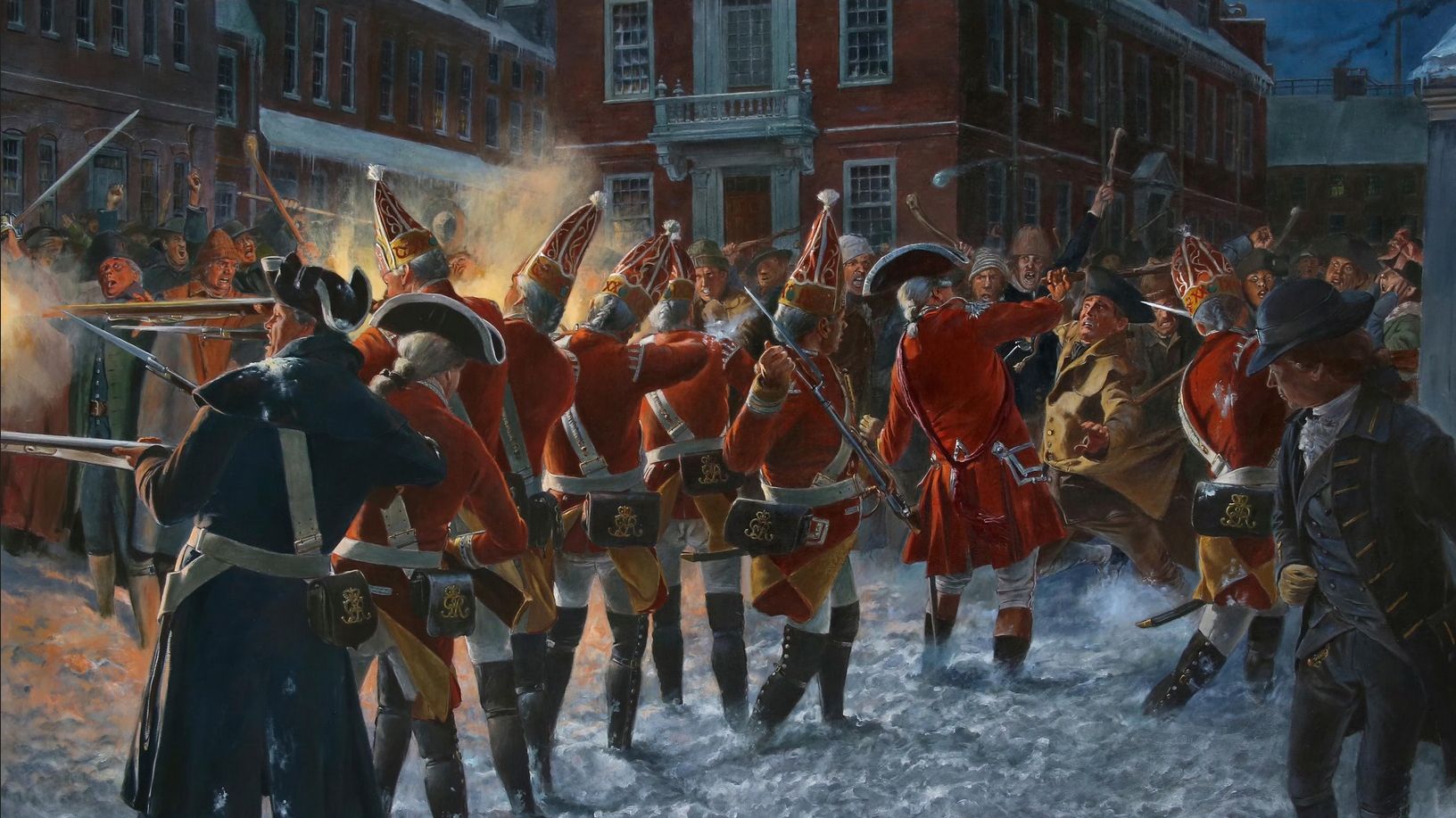

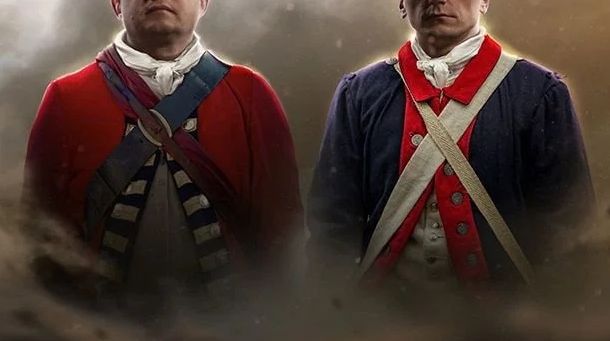
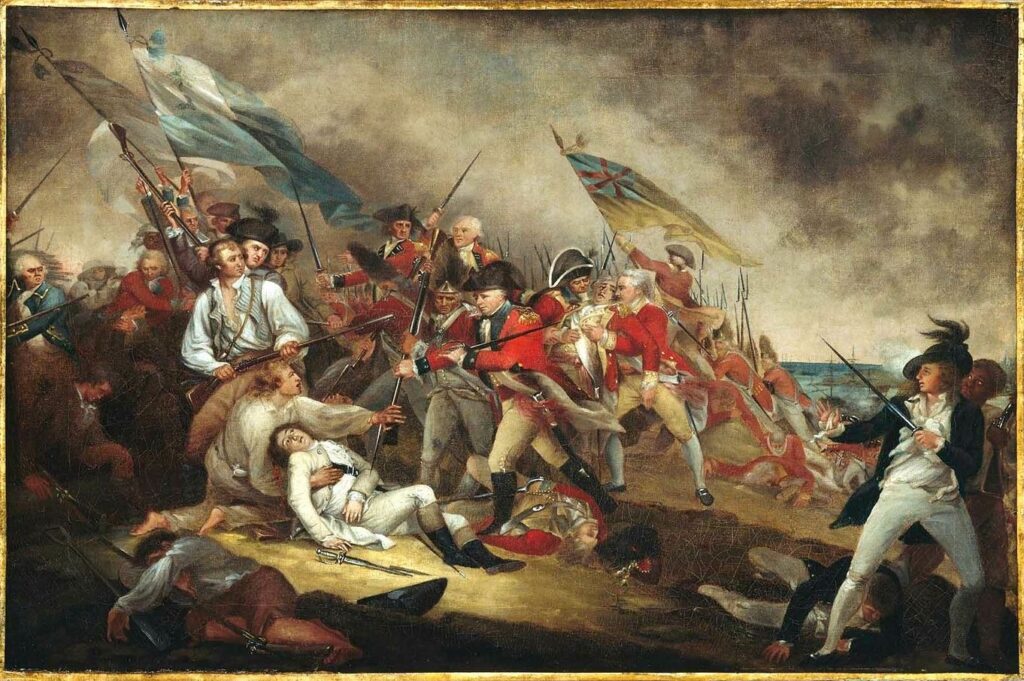
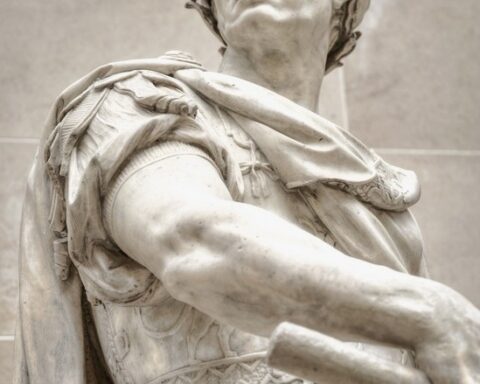

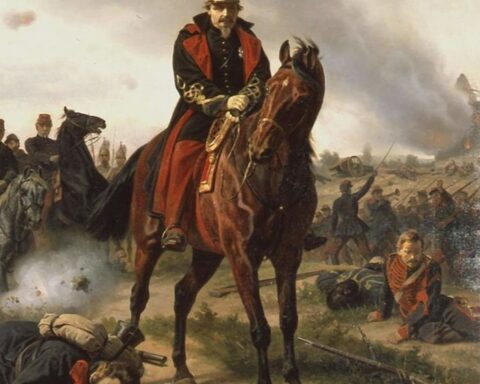
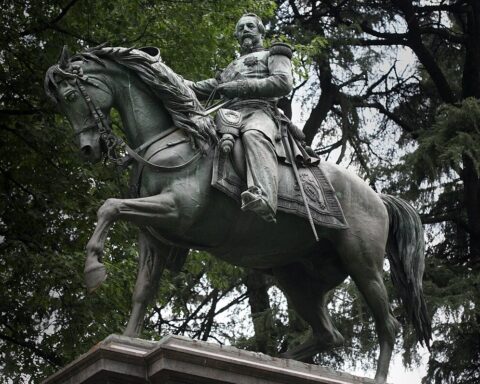
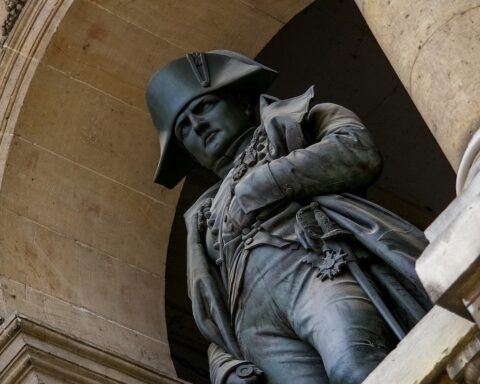
Goldwin Smith interleaves his criticism of the Crown and the Colonies with rueful acknowledgment of the straits the British found themselves under prepared to handle ruling at that distance and coming up short in the political and military leadership department, all the while, begrudgingly I think, admitting the colonists had some points in their favor, only to turn around and sneer, if ever so faintly, at their foibles and shortcomings as seen from the 1890s.